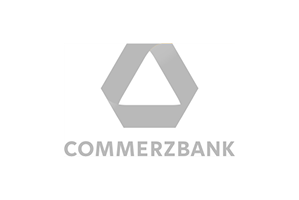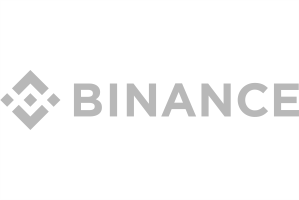As a guarantee that cryptocurrency companies are complying with the laws, the Federal Financial Supervisory Authority (BaFin) issues the necessary Germany crypto license to maintain the stability and integrity of the financial market. Through a path of close monitoring of both new and existing financial institutions, the regulatory authority ensures that conditions are met. Germany is a Financial Action Task Force on Money Laundering (FATF) member. Thus, the state ensures compliance with strict anti-money laundering and counterterrorist financing standards in the crypto sector. Increased confidence in business, attractiveness to investors, promising greater transparency and security, and other opportunities arise for those who have received a BaFin crypto license.
Benefits of a Germany Crypto License
- Promoting an optimal environment for innovation, as Germany is known for its lenient tax policy and support for cryptocurrency startups despite its strict regulatory standards.
- Providing a clear legal framework for cryptocurrency operations. Germany allows legal operations with cryptocurrencies, unlike some European countries.
- Building strong, trusting relationships between businesses, partners, and customers around the world, with a stable and reliable jurisdiction.
- A responsible and profitable market, which is especially important for global corporations and cryptocurrency companies.
- Encouragement of continuous innovation and expansion, as the banking sector has no barriers that would prevent it from exploring new financial technologies and offering cryptocurrency services to its customers.
Crypto Regulations in Germany
There is a certain list of national and EU laws that must be followed in order to successfully obtain cryptolicense in Germany. The country’s legal framework is designed to ensure clarity and security of the cryptocurrency business, as well as a number of legislative acts.
Essential German legislation for cryptocurrency business
- The German Electronic Securities Act.
- The Anti-Money Laundering Act.
- The German Securities Trading Act and MiFID II.
- The German Securities Prospectus Act.
- The German Capital Investment Act.
- The German Banking Act.
- The Insurance Supervision Act and the Payment Services Supervision Act.
- The Investment Code.
The German Banking Act emphasizes an individual approach to compliance with regulatory requirements and specifically highlights the classification of crypto assets.
Regulatory changes at the EU level
Phased in by 2024, the Markets in Crypto Assets Regulation (MiCA) introduces pan-European standards for the regulation of cryptocurrencies, focusing on issues such as
- Obligating crypto businesses to disclose information about their environmental impact.
- Ensuring financial stability by relying on the European Business Association to oversee stablecoins.
- In order to strengthen the fight against money laundering and terrorist financing (AML/CFT), the EBA will also identify and monitor cryptocurrency service providers that do not comply with the law.
Activities Requiring a Germany Crypto License from BaFin
Obtaining a crypto license Germany is essential for various cryptocurrency-related activities under the oversight of BaFin, including:
- Crypto to Crypto Exchanges
- Custodial Wallet Services
- Initial Coin Offering (ICO)
- Security Token Offering (STO) and Initial Exchange Offering (IEO).
- Crypto Investment Advice
- Cryptocurrency Mining
- Fiat to Crypto Exchanges
- Fiat Storage for Crypto Exchange
- Cryptocurrency Investments and Funds
- Cryptocurrency Gambling
- Crypto Transactions Between E-Wallets
- Cryptocurrency Loans
Considering the above activities, separate authorizations may be required for each of them depending on the specific business model and the nature of the services or products offered. To determine the type and scope of license required, the BaFin crypto license procedure is individualized, taking into account the unique aspects of each crypto business.
Classification and regulation of tokens
German law distinguishes between different types of tokens when it comes to licensing requirements:
- Cryptocurrency tokens – a virtual currency or means of payment that requires a banking license.
- Security tokens – related to future profits, interest, or rights (e.g., voting rights), which requires a banking license and a securities license.
- Utility tokens – providing access to services or products on the DLT platform that, due to their nature, are not subject to strict regulation by financial market laws.
Cryptocurrency License in Germany and Italy
When aiming to obtain crypto exchange license in Germany, it is worthwhile to comply with AML/CFT standards, as well as rules that depend on the cryptocurrency assets and business model. Detailed financial evidence, business plans, and information about directors and significant stakeholders should be considered when applying. In addition, Bafin’s requirements include separate permits for different types of covered activities, emphasizing the need for a well-structured operational plan and IT systems.
When considering Italy for a license, compliance with the AML regulatory framework, which also focuses on anti-money laundering and countering the financing of terrorism (AML/CFT), is required. As a guarantee of compliance with the standards of operational integrity and transparency, VASPs must register in a special register.
Professional qualifications of the staff, evidence of physical presence in the office, and sufficient capital must be demonstrated as operational readiness.
Requirements
Obtaining Germany cryptocurrency license necessitates adhering to a structured application process governed by German and EU regulatory frameworks. Here’s a concise guide to the essential steps and requirements:
Understanding Regulatory Compliance
- AML/CFT Regulations – fundamental for all crypto businesses, focusing on anti-money laundering and counter-terrorist financing.
- Legislation Variability – depends on the crypto assets and business model specifics. Activities under MiFID II may require adherence to EU regulations beyond the German Banking Act.
Authorization for Multiple Activities
Separate BaFin authorizations are needed for diverse crypto-related activities, especially for firms engaged in the financial market or trading systems.
Application Documentation
- Proof of Initial Capital (125,000 euros).
- Business Plan for Three Years.
- Director and Management Credentials:
- Reliability and professional aptitude of company directors.
- Disclosure of any significant relationships with other individuals or companies.
- Information on major shareholders, their stake, and financial integrity, supported by financial statements and audit reports.
- Group Structure Information: For entities within a corporate group, including organizational charts and consolidated financial accounts.
Business Plan Specifications
- Types of planned crypto transactions.
- Organizational Structure, including details on parent and holding companies.
- Descriptions of governance procedures and technological infrastructure.
Language Considerations
BaFin requires submissions in German.
The Process of Obtaining a Crypto License in Germany
Application Submission
- Applications must be complete and include all required documentation.
- Justification is needed for any missing information, along with an estimated submission date.
Fees Associated with the Application
- Initial Application Fee: 10,750 EUR, applicable to all applicants.
- Charges apply if an application is rejected or withdrawn.
- A fee may be charged for suspending the authorization process due to its use of administrative resources.
Authorization Process Timeline
- BaFin aims to inform applicants of their decision within six months.
- The process duration varies based on the business model’s complexity and the quality/completeness of the documents.
Pre-Authorization Communication
- Applicants can consult BaFin or their Deutsche Bundesbank regional office for clarifications on supervisory legislation.
- Operating without authorization is prohibited.
Digital Submission Requirements
- Applications must be signed with a qualified electronic signature, following section 3a of the German Administrative Procedure Act.
- Documents can be submitted in digital format through secure communication channels (e.g., PGP or S/MIME-encrypted emails), unless original documents or handwritten signatures are required by law.
Annual Supervision Fees
- Determined based on the regulatory services provided by BaFin and the supervised business’s complexity.
- Fees can range up to 500,000 EUR.
Germany Crypto License Taxation
For taxation, cryptocurrencies are treated as private assets in Germany, leading to specific tax obligations under the Germany cryptocurrency exchange license framework. Key points include:
- Holding cryptocurrencies for over a year qualifies for a 25% capital gains allowance.
- Crypto businesses must pay common taxes, such as Corporate Income Tax at a 15.83% rate.
- Cryptocurrencies are exempt from the standard 19% VAT, though other token types may be VAT-liable.
- Firms must report all pertinent details, especially transactions involving foreign entities.
FAQ
Is it possible to conduct cryptocurrency activities without notifying the national tax authority?
Within a month after registration in the Commercial Register, crypto companies must register as taxpayers.
Can a non-resident of Germany be the owner of a cryptocurrency company?
There are no residency requirements for founders of cryptocurrency companies. The main thing is that they have the right to enter the country.
What amounts are required for the initial capital of a German crypto company?
For example, if we consider cryptocurrency storage licenses, it is 125,000 euros. In the case of a crypto securities registry, you need at least 150000 euros.
What difficulties can arise when obtaining a crypto exchange license in Germany?
This is a difficult task because the Federal Financial Supervisory Authority (BaFin) carefully protects the national financial market. When applying for a cryptocurrency license in Germany, you need to prove competence, show reliable internal processes, and take care of an exhaustive amount of documentation.








